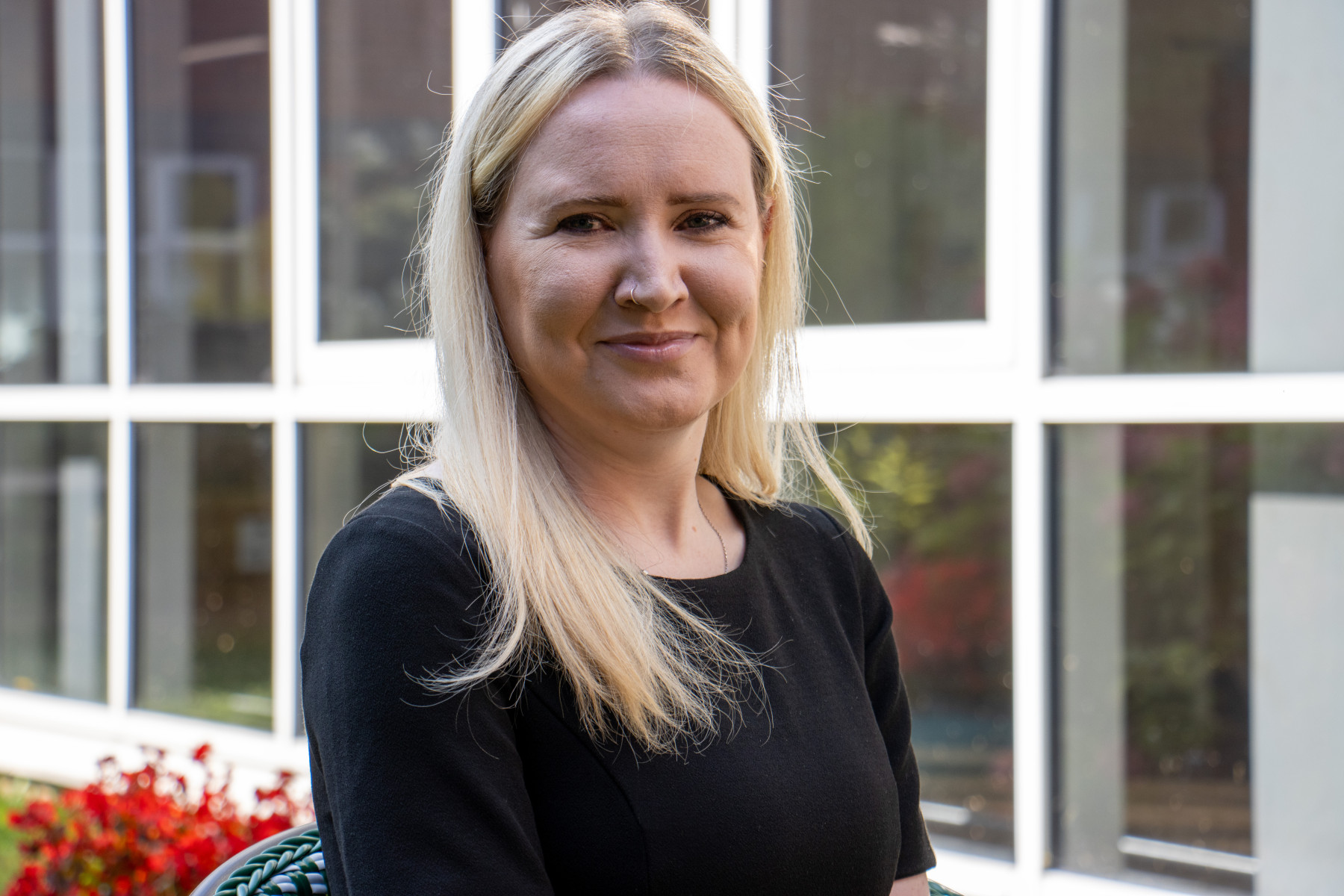New Cystic Fibrosis Innovation Hub will aim to develop pioneering tests and treatments for lung infections

Researchers at The University of Manchester in collaboration with Manchester University NHS Foundation Trust (MFT) are launching a new Cystic Fibrosis Innovation Hub to accelerate the development of new tests and treatment approaches for lung infections, and improve the way that lung health for people with Cystic Fibrosis is managed in the UK.
Cystic fibrosis (CF) is one of the UK’s most common life-limiting inherited diseases, affecting over 11,000 people and nearly 200,000 people worldwide.
The condition causes mucus to build up in the internal organs, especially the lungs and digestive system. This can lead to chronic chest infections, lung inflammation and other complications such as digestive problems. For many people, managing their health involves a rigorous daily treatment regime including physiotherapy and antibiotics which can be given orally, through a nebuliser (a device where liquid medicine is turned into a mist that can be inhaled) and occasionally intravenously (through a vein).
Despite recent advances in treatment, there is still no known cure for CF, and the average age of death is just 33.
The multi-million-pound Innovation Hub in Manchester will be part of a new £15 million Translational Innovation Hub Network, funded by medical research charity LifeArc and leading charity Cystic Fibrosis Trust.
Research in Manchester will take place at Wythenshawe Hospital, part of MFT, focusing on understanding why people develop lung exacerbations (flare-ups) and how to personalise treatments for them. By sharing samples, recording results at home, and measuring their home air pollution levels, people with CF will play an important part in studying what triggers these flare-ups and who is most affected.
The responses of people with CF to intravenous (IV) treatments for exacerbations will also be studied using similar monitoring systems. The results of these studies will be essential in helping researchers to find different ways of preventing and treating exacerbations.
Research space, laboratories and specialist lung function support will be provided by the National Institute for Health and Care Research (NIHR) Manchester Clinical Research Facility (CRF) at Wythenshawe Hospital. Samples will be processed by the NIHR Centre for Precision Approaches to Combatting Antimicrobial Resistance, also at the hospital site.
The Manchester CF Innovation Hub Director is Professor Alex Horsley, a Consultant at the Manchester Adult Cystic Fibrosis Centre at MFT and Professor of Respiratory Medicine at The University of Manchester.
Professor Horsley, who is also Clinical Director of the NIHR Manchester CRF at Wythenshawe Hospital and leading researcher in the Respiratory Medicine theme at the NIHR Manchester Biomedical Research Centre (BRC), said: “This is an amazing opportunity to improve the lung health of people with CF in a way that we’ve never had the opportunity to do before. Together with scientists at The University of Manchester and clinicians at Wythenshawe Hospital, part of MFT, we’re building on existing partnerships with doctors and scientists in teams around the country. We hope our research will help us understand why people with CF get flare-ups (exacerbations) and how to better prevent and treat these. This will lead to more effective, shorter and tailored or personalised treatment plans that will reduce exacerbations and the disruptions they cause to people’s lives.”
Researchers from the NIHR Manchester BRC Respiratory Medicine theme, which aims to identify better ways to diagnose lung disease and which factors decide how well people respond to treatments, will act as Principal Investigators for the studies delivered by the Manchester Hub.
Laura, 35, has Cystic Fibrosis and is Patient Lead for the Innovation Hub in Manchester. She said: “CF has a huge impact on my daily life, it’s 24/7. Even if I want to go out for the day, I have to think about getting all my treatment done, have I got enough tablets and how long am I going to be out for. The symptoms change frequently and can change from one day to the next. As soon as I wake up and until I go to bed, it does occupy a lot of my thoughts and impacts how I live my life.
Laura, who receives care at the Manchester Cystic Fibrosis Centre at MFT, added: “I had an exacerbation when I was 9 or 10, and that really changed the trajectory of my health. Research looking into exacerbations, what the triggers are, and the treatments, is massively needed. I think these Innovation Hubs are a fantastic opportunity to be able to change the way CF is managed.”
The Network will be made up of four Innovation Hubs, led by the universities of Manchester, Liverpool, Cambridge and Imperial College London, as well as partners across the UK and overseas. Guided by insights and experiences of people with cystic fibrosis, the Hubs will address areas of unmet medical need and help to overcome some of the barriers that can prevent scientists from turning their discoveries into real outcomes for patients.
Dr Catherine Kettleborough, Head of Chronic Respiratory Infection at LifeArc said: “Even with the development of new treatments like Kaftrio, people with cystic fibrosis still face many challenges which impact their quality of life and life expectancy. The Innovation Hub Network is a unique approach to addressing these problems, using shared knowledge, partnerships and investment to accelerate new tests and treatments for people living with CF.”
Through innovative research, including using AI, sniffer dogs and new home monitoring tests to detect and even predict infections, the Innovation Hubs will aim to transform the way lung infections are managed.
Dr Lucy Allen, Director of Research and Healthcare Data at Cystic Fibrosis Trust, said: “We’re thrilled to be partnering with LifeArc and expanding our Innovation Hub programme, combining our expertise and exploring exciting areas of research to maximise the impact for people with CF.
“Those with the condition are particularly susceptible to lung infections, meaning they often have to spend time in hospital having IV antibiotic treatments and this has a huge impact on all areas of their life. These new Innovation Hubs will help transform our understanding and lead the way to new ways to test and treat lung infections.”
Based at Wythenshawe Hospital, the specialist Manchester Adult Cystic Fibrosis Centre at MFT is one of the largest and longest established adult CF centres in the UK, with an international reputation for excellence and innovation.
Images: Laura and Alex Horsley




